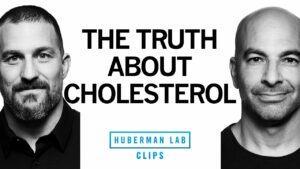In this interview, renowned football coach Thomas Tuchel discusses his experience with ayurvedic healing and the importance of prioritizing mental and physical well-being. Tuchel emphasizes the use of intuition in coaching, stating that it is often based on experience and observation. He mentions that being present and observant is crucial, both for coaches and players, to create a positive and successful environment. Tuchel also highlights the challenges of dealing with criticism and the pressure to win, stressing the significance of maintaining a routine and taking care of oneself. Overall, Tuchel believes that a holistic approach to health and wellness is vital in both coaching and personal life.

Our Summaries are written by our own AI Infrastructure, to save you time on your Health Journey!
Key Insights:
- Thomas believes in not reading about himself on social media to avoid being affected by both praise and criticism.
- Thomas came to Ayurveda to experience its lifestyle and routines after being familiar with it through meditation.
- Ayurveda can be a beneficial addition to sports medicine and can help improve performance and overall health.
- Having a routine, eating mindfully, and taking care of the body are essential for health-conscious individuals like Thomas.
- Thomas acknowledges the pressure that comes with being a coach and handling criticism, but he tries to analyze the matches and improve his coaching.
- Intuition plays a significant role in Thomas‘ coaching, and it often derives from experience and observation.
- A coach’s role is to replicate and enhance the skills of their players, create a positive team culture, and push players to reach their potential.
- Thomas emphasizes the importance of focusing on the process and taking care of the little details to achieve results.
- He believes that enjoying the game and playing with freedom is essential but requires preparation and a strong mindset.
- Thomas experienced moments of discomfort during the Ayurvedic treatment, but he ultimately feels self-confident, happy, and healthy.
- He encourages more men to explore treatments like Ayurveda for well-being and health, even if they don’t feel sick or burnt out.
Transcript
[Background Music]
Thomas: I trained myself not to read about myself because the more I thought about it and the more I got affected, also by praise. It’s not only by critic, but also like praise and critics sticks with you, if you want it or not, and I don’t want it.
[Background Music]
Thomas: Well, since a long time, I got closer and closer to ayurveda through meditation and got familiar with the lifestyle and with a routine that is attached to this philosophy. I had always a good feeling about it and had a very demanding year, both in personal and working life. So, I thought it was the perfect time for a break and a new start in my life.
Interviewer: So, what brought you to ayurveda in the first place?
Thomas: One of my assistants did it five, six years ago, and we keep talking about it. So, now was the moment for a little break and a new start in my life. I was very happy to have done it.
Interviewer: Thomas, you have access to some of the best sports medicine and health and fitness support. So, after going through this panchakarma treatment, where do you think it fits in your health-conscious routine?
Thomas: It definitely fits in. At clubs like Chelsea, we have a routine. We provide a disciplined rhythm for the players to generate their full potential. On top of it, there can be improvement with ayurveda. For example, at Chelsea, we had an employee from India who taught a mixture of yoga and meditation for the players and for me to calm down and relax before and after matches.
Interviewer: As a health-conscious person, how do you protect yourself from triggers like unhealthy food and late nights?
Thomas: It’s not always easy, especially with late-night matches and temptation to eat a lot afterward. But I have a routine where I try not to eat after 7 PM, reduce sugar intake, and have regular blood tests. It’s about being aware of what works for my body and making conscious choices.
Interviewer: Dealing with criticism must be tough in your line of work. How do you cope with it?
Thomas: Criticism does affect me, but I have trained myself not to read about myself on social media. It’s about protecting myself from both praise and criticism. I ask myself, why should I read something about my team and my match when I should know better than anyone?
Interviewer: You mention intuition a lot. How important is intuition in your coaching?
Thomas: Intuition is crucial for me. It’s a feeling developed through experience and observation. Sometimes, it’s hard to explain how I sense things, but it guides my decision-making as a coach. I try not to lose connection with that gut feeling.
Interviewer: As a coach, you have to get the best out of your players. What makes a good coach?
Thomas: A good coach is someone who can replicate certain skills in others and sees their potential. It’s about creating a culture where everyone feels confident and performs their best. It’s also about being a helper, a facilitator, someone who pushes and protects their players. It’s a complex role that requires leadership, observation, and adaptability.
Interviewer: Enjoying the game and being present in the process is often emphasized. Is it possible to truly disassociate from the outcome?
Thomas: It’s easier said than done. While we want players to play with freedom and not fear, it also depends on their mindset and preparation. As a coach, I encourage my players to focus on the process and trust their training. However, results do matter in the end, and we need to strike a balance between enjoying the game and striving for positive outcomes.
Interviewer: Ayurveda retreats often attract more women than men. What advice do you have for men considering such treatments?
Thomas: I understand that it might feel unusual for men to participate in activities like yoga or ayurveda retreats where there are predominantly women. However, it’s about well-being, health, and taking care of your body. There should be no difference between men and women in prioritizing their health and happiness. I recommend trying these treatments even if you don’t feel sick or burnt out.
Interviewer: After going through this panchakarma treatment, what have you learned and how has it benefited you?
Thomas: It has been a fantastic experience for me. I have learned to live without sugar, which has been a significant change for me. I feel more self-confident, happy, and healthy. The whole process has been a ceremony to close some chapters and start anew. I feel a difference in my stomach, calmer sleep, and an overall sense of well-being.
Interviewer: Thank you, Thomas, for sharing your insights and experiences with us.
Thomas: Thank you for having me. It’s been a pleasure.





